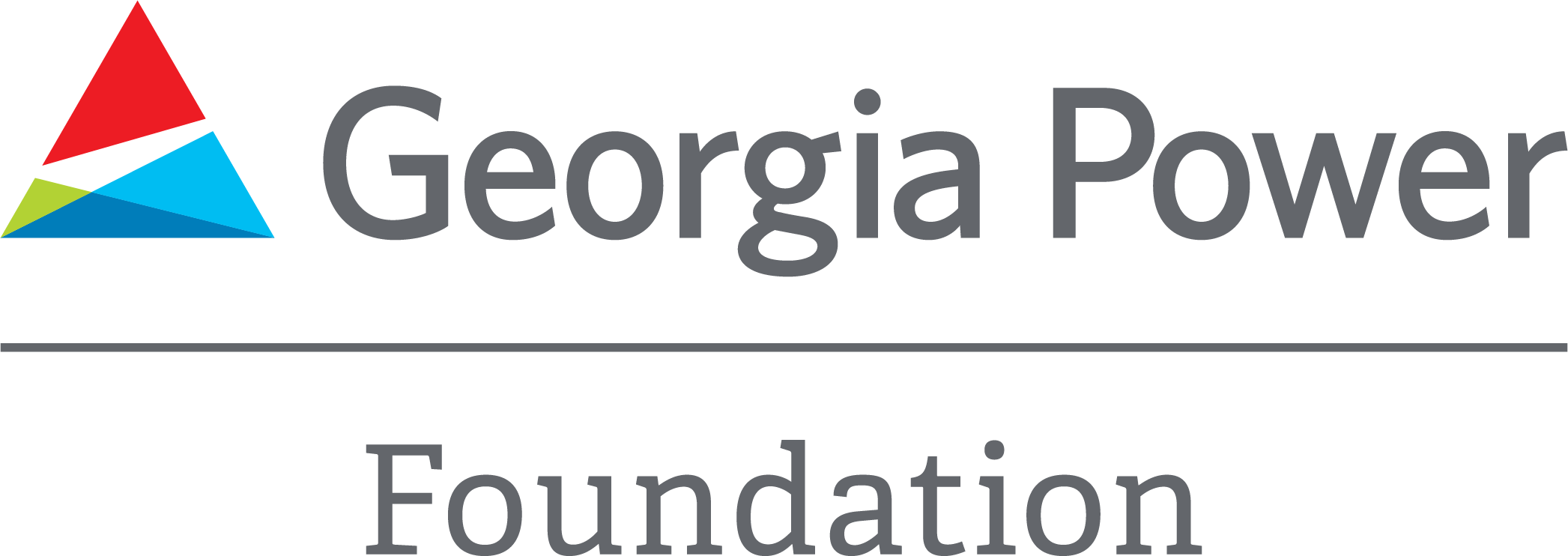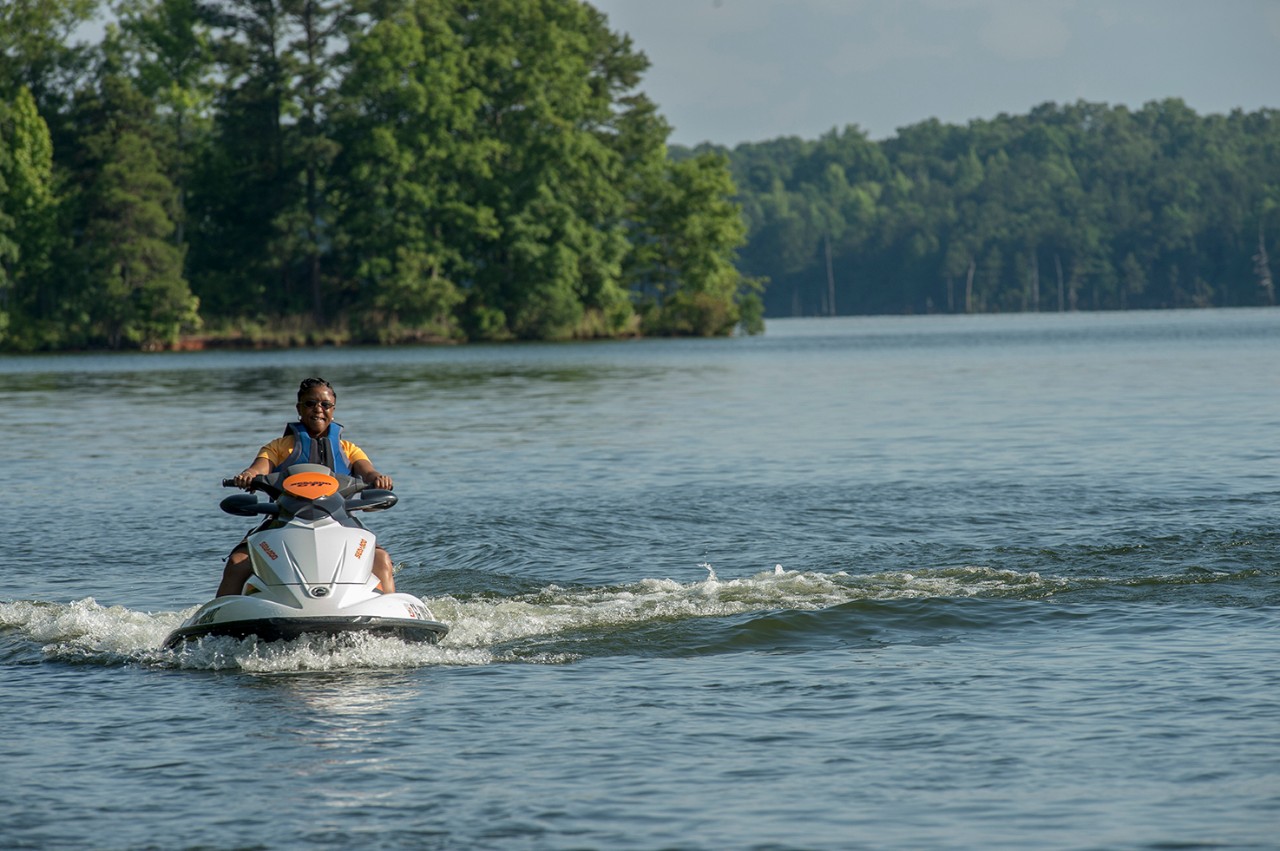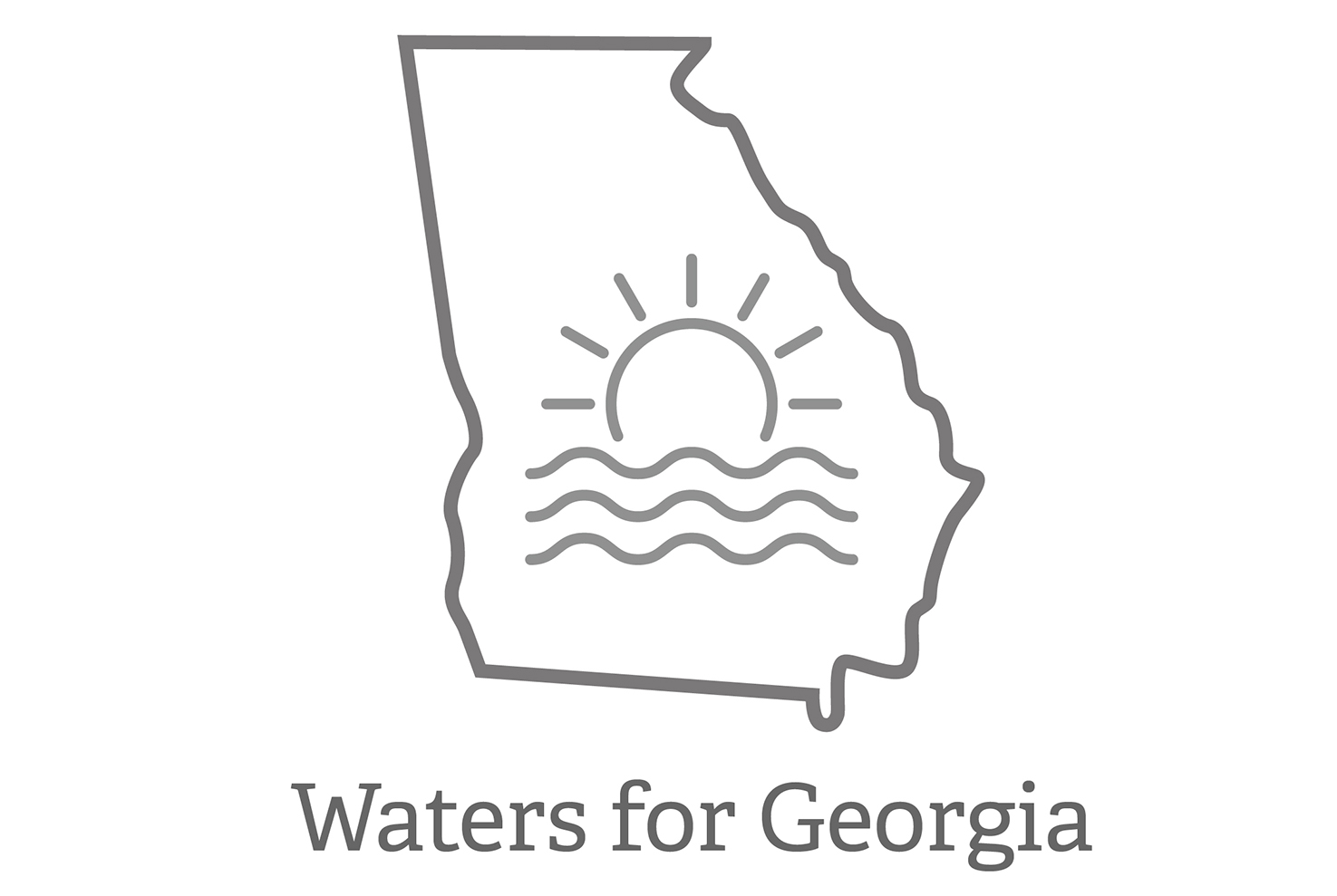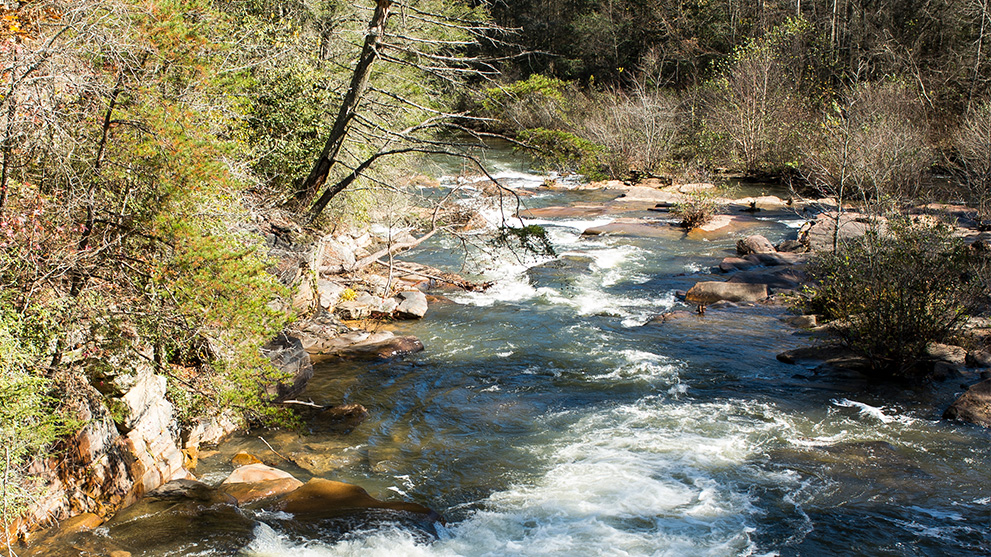The Georgia Power Foundation, Inc. is inviting you to submit a project concept for the Waters for Georgia Grant Program. Through this program, the Georgia Power Foundation, Inc. seeks to invest in water resource focused projects that result in measurable benefits to environments and communities of Georgia.
To demonstrate our support, the Georgia Power Foundation, Inc. is awarding up to $1M in Water Grants in 2024 - $500,000 for each geography of interest. For the 2023-2024 grant round, project concepts will be considered for the following geographic areas:
- Chattahoochee River - Metro Atlanta
- Coastal Marsh Watersheds of Georgia
To ensure that funding is directed where it is most needed, proposed projects should contribute to existing regional or watershed scale conservation, restoration, or improvement plans or initiatives. Additional consideration will be given to projects benefiting majority Black, Indigenous, and people of color (BIPOC) and underserved communities.
Project Submittal Instructions
Applicant Eligibility
Applicant Eligibility The Georgia Power Foundation, Inc. will consider proposals from governmental agencies or organizations that have an active 501(c)3 tax designation and described in Section 509 of the Internal Revenue Code except for any organization described in Code Section 509(a)(3)(B)(iii) that is not “functionally integrated” with its supported organization. Georgia Power Foundation does not provide grants under the following situations.
- To individuals, private elementary or secondary schools, religious organizations, or political campaigns or causes.
- To organizations whose policies or actions discriminate on basis of race, color, national origin, sex, religion, gender identity, sexual orientation, age, or disability.
- For projects designed to mitigate legal or regulatory compliance obligations or tied to ongoing legal or regulatory action


Important Contacts
RFP questions:
Robert Warren
Bonneville Environmental Foundation
rwarren@b-e-f.org
360-391-8491
Online form/website questions:
Kecia Haggins
Georgia Power Foundation, Inc.
gpfoundation@southernco.com
404-506-4265
Required Proposal Elements
Desired Outcomes
The Georgia Power Foundation, Inc. supports a wide range of project types that address the sources or causes of water quality impairments and support multiple benefits for communities and aquatic ecosystems.
All projects must have a clear link to watershed and ecosystem health.
Projects that also include objectives related to improving community well-being, water supply sustainability and/or resiliency for sustainable uses such as agriculture, municipal drinking water, industry, recreation, etc. are strongly encouraged.
Examples of project types include (but are not limited to):
• Implementation of agricultural Best Management Practices (BMPs) linked to improved water quality (e.g., stream fencing, off-channel livestock watering, sediment control, etc.)
• Physical enhancement of aquatic or riparian habitat (e.g., buffer revegetation/restoration, stream channel reconstruction, instream habitat structure, improved stream/aquatic passage, barrier removal etc.)
• Improving or addressing water conservation (e.g., irrigation efficiency, groundwater recharge, reconnecting floodplains, etc.)
• Green infrastructure: stormwater runoff management to the extent that stormwater influences impairment criteria
• Others (e.g., all project types which directly address and enhance water quality and aquatic habitats and meet all other program criteria will be considered for funding)
Evaluation & Priorities
Proposals meeting the eligibility and content requirements of this RFP will be reviewed by a committee including academic and non-profit stakeholders with knowledge of water quality issues in Georgia. Final project selection will be made based on the recommendation of the review committee.
Priority will be given to projects that have the following attributes:
- Have the potential to impact the long-term ecological health of the water body and larger watershed;
- Contribute to an existing watershed, water quality improvement, or conservation plan or initiative (including National, regional, State, or local scales);
- Contribute to species conservation in biologically impaired streams, particularly those involving rare, threatened and endangered (RTE) species;
- Can be monitoring by an existing or proposed monitoring plan;
- Provide clear social co-benefit(s) - especially in -BIPOC or underserved communities;
- Leverage cost-sharing and/or matching funds through private donors, corporate partners, and/or state 319(h) grants or other government funding to maximize overall project value;
- Have current unmet funding needs of at least $25,000; or GPF will consider unmet/gap funding proposals of less than $25,000 for projects that promise exceptional water stewardship benefits to the community
- Will be implemented and begin delivering benefits by December 31, 2023
Project Title
Provide a project title that is descriptive of the location and action being taken.
Project Sponsorship Information
- Identify the organization that is the official proposal sponsor (name, address, phone, website, and EIN).
- Provide the contact information for the person responsible for all project related correspondence (name, address, phone, email).
- Provide contact information for the person(s) responsible for managing the project (project planning, implementation, and reporting) (name, address, phone, email).
- List all project partner organizations (name, address, phone, and contact person).
Project Summary or Abstract
Provide a concise narrative of 200 words or less that describes the project context, site conditions, and factors that may influence successful implementation, expected outcomes, and long-term desired impact.
Location
All proposals should include - at minimum - a basic Project Map (e.g. Google Earth): This should include the physical location of the project (Lat/Long coordinates), and the extent or targeted stream-reach expected to benefit. Please include names of streams or watersheds and nearest town and/or county place names.
Context
- Identify any relevant restoration/conservation plans or initiatives to which the project contributes (e.g. Total Maximum Daily Load (TMDL), species conservation plan, Watershed Assessment and Protection Plan, etc.).
- Identify and describe the environmental and/or social issue(s) the project addresses or solves (as defined by existing comprehensive plans identified above).
- List the designated uses the waterbody fails to support (is it listed as impaired under Section 303(d) of the Clean Water Act?) and the key parameters of concern.
Strategy
- Describe the project approach or strategy and the specific implementation objectives against which progress or completion can be measured.
- Identify the desired environmental or social outcomes and describe how the work benefits the ecosystem and/or human communities.
- [Upload] Project designs, if available.
- Describe how the project’s implementation objectives and outcomes will be measured and over what timeframe.
- What is the organization’s track record for implementing similar projects?
Timeframe
Define the project implementation timeframe. Include the proposed project start-date, key intermediate milestones, and anticipated date of completion. Include any key permits, landowner permissions and authorizations necessary for project success.
Budget
- What is the overall estimated cost of the project? Identify any unmet funding needs?
- If known, what percentage of the total project cost is shared (or anticipated to be shared) by other funding sources (e.g. 25%, 50%, 75%, 100%) and the diversity of funder types (public, private, local to demonstrate local commitment, etc.)?
- How much funding is sought from the Waters for Georgia Program?
- Please complete the provided budget template and include the following details:
- How much funding is sought from the Waters for Georgia Program?
- Identify any secured funding.
- What activities or costs would be funded through support from the Waters for Georgia Program?
2021 Water Grant Recipients
1. Flint River Soil and Water Conservation District
Restoration of Spring Creek through Agriculture
2. Flint Riverkeeper, Inc.
Development of De-Listing Plan for Pigeon Creek, Flint River, GA
3. Phinizy Center for Water Sciences, Inc.
Fecal Pollution Monitoring and Microbial Source Tracking of Brushy Creek
4. The Conservation Fund
Building a Park with Purpose: Restoring Proctor Creek, reducing urban flooding, and uplifting equitable community-driven outcomes in the Hunter Hills neighborhood of NW Atlanta
5. The South Fork Conservancy Incorporated
Rain Gardens at South and North Forks of Peachtree Creek
6. The South Fork Conservancy Incorporated
Runoff Mitigation at Nickel Bottom Community Garden
7. Trees Atlanta, Inc.
Green Streets and Clean Streams Phase II – Building a Citywide Green Infrastructure Program for Atlanta Communities
2019 Water Grant Recipients
1. Chattooga Conservancy, Inc.
Chattooga Conservancy, Inc. for Rabun County Agricultural Best Management Practice Project, Green Infrastructure Project, and Warwoman Creek Pollution Mitigation Project.
2. City of Hinesville
City of Hinesville for Peacock Creek Restoration: A Green Infrastructure Demonstration in Historic Downtown Hinesville’s Bradwell Park.
3. Environmental Community Action, Inc.
Environmental Community Action, Inc. for Stormwater Capture and Reuse for Proctor Creek Water Quality Improvements and Potable Water Conservation at Spelman College.
4. Golden Triangle Resource Conservation and Development Council
Golden Triangle Resource Conservation and Development Council for Spring Creek Stream Bank Stabilization Project.
5. Nature Conservancy, Inc.
Nature Conservancy, Inc. for Removing Barriers to Aquatic Connectivity in the Holly Creek Subwatershed of the Conasauga River.
6. Southeastern Association of Fish & Wildlife Agencies
Southeastern Association of Fish & Wildlife Agencies for the Hillabahatchee Creek Restoration: Addressing fecal coliform impairment through the implementation of agricultural best management practices for livestock exclusion and Restoring Riparian Zone Health and Spring Function in the Soque River Watershed: Addressing Nonpoint Source Pollutants Through Implementation of Agricultural Best Management Practices.
7. South River Watershed Alliance
South River Watershed Alliance for Panola Shoals Riverbank Stabilization and Restoration Project.
8. Trees Atlanta, Inc.
Trees Atlanta, Inc. for Green Streets and Clean Streams – Building StreetSide Green Infrastructure for Atlanta Communities.
2019 Water Grant Outcomes


